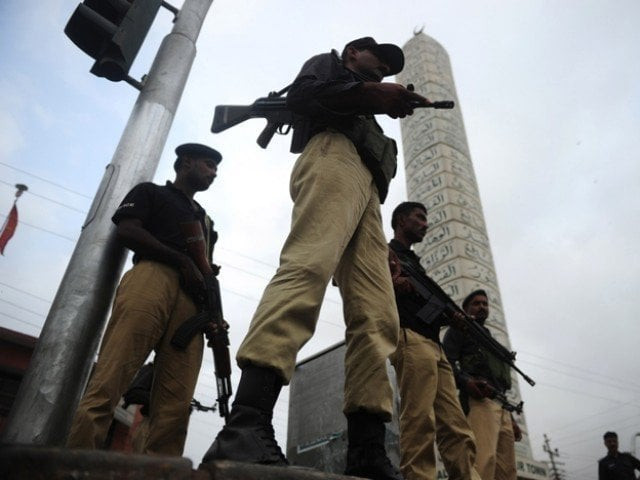Dirty policing
There is a widespread acceptance that the police forces across the country are corrupt and inept

A file photo of Karachi police. PHOTO: REUTERS
The abuses of power are blatant and open, such is the culture of impunity that protects corrupt police. Last November, police kidnapped three men using police vans and held them for ransom at the police station. A case has been registered against the corrupt offenders but that is as far as it has got and there seems to be no expectation of a successful prosecution. In other instances, police have posed as members of the Counter Terrorism Department (which is itself investigating cases of kidnapping by police officers) and some of those accused say that others more senior than themselves were the real guilty parties. These cases are not going to be isolated. Kidnapping for ransom is rife across the country and the police are in an ideal position to carry out such crimes — and get away with them. Senior officers are of course quick to deny their involvement and lay the blame elsewhere but the fact remains that these latest revelations further erode public confidence in the police. The ongoing operation in Karachi is going to do nothing in the long term to affect the internal culture of the police. That would require a root-and-branch re-organisation that none of the political parties have the stomach for. Dirty policing is going to be with us for years to come.
Published in The Express Tribune, April 16th, 2016.
Like Opinion & Editorial on Facebook, follow @ETOpEd on Twitter to receive all updates on all our daily pieces.














COMMENTS
Comments are moderated and generally will be posted if they are on-topic and not abusive.
For more information, please see our Comments FAQ